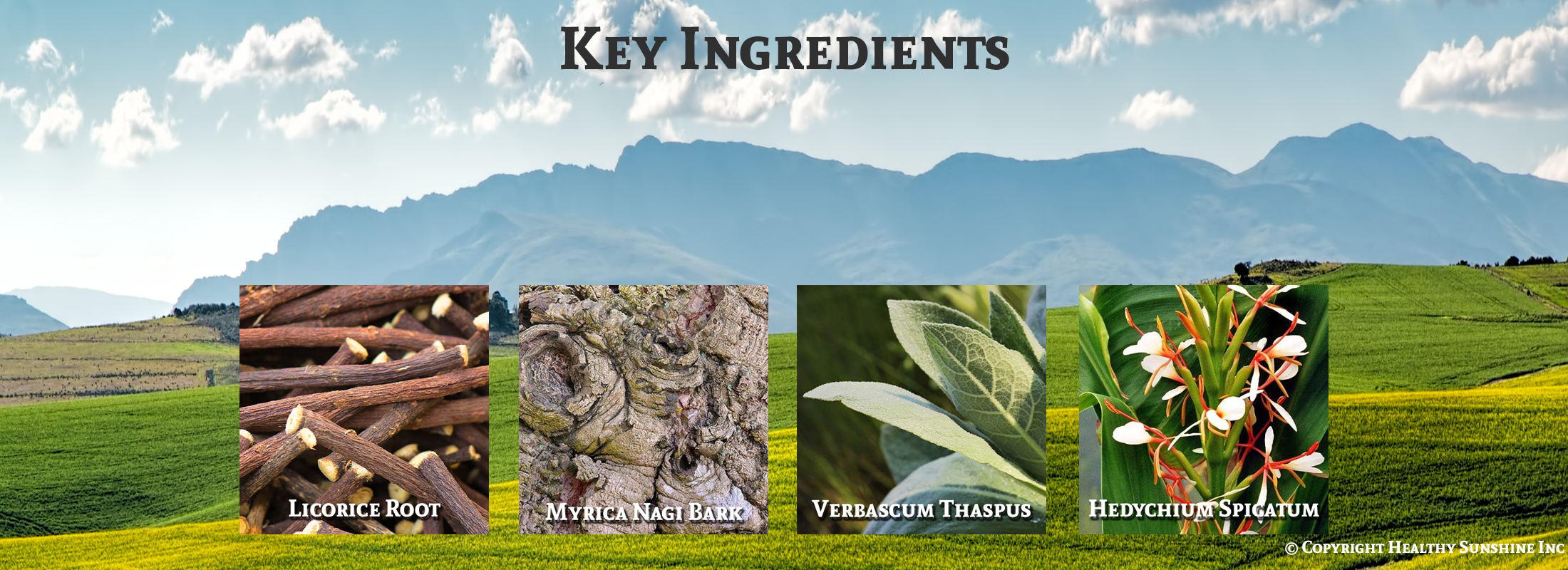Benefits:
- Supports the respiratory system.
- Supports bronchial function.
- Nourishes the lungs and bronchi.
- Is a balancing formula to minimize respiratory irritation.
How It Works:
The respiratory system regularly encounters airborne particles such as microorganisms, pollutants, pollens and dust, and protects delicate body tissues. As a result, the functions of the lungs and bronchi can be affected.
This Ayurvedic formula nourishes the lungs and bronchi and helps support the respiratory system. This formula, developed in concert with Indian Ayurvedic masters with herbs direct from India, provides nutrients necessary for respiratory health and function.
Ingredients:
Adhatoda vasica leaf extract, Glycyrrhiza glabra root extract, Alpinia galanga rhizome extract, Clerodendrum indicum root, Inula racemosa root extract, Myrica nagi bark extract, Verbascum thapsus leaves, Phyllanthus emblica fruit, Hedychium spicatum root, Picrorrhiza kurrooa root extract, Pimpinella anisum fruit, Pistacia integerrima gall, Zingiber officinale rhizome, Ocimum sanctum leaf extract, Tylophora asthmatica leaf, Abies webbina leaf, Elettaria cardamomum seed and Ferula assafoetida gum.
Recommended Use:
Take 2 capsules with a meal three times daily.
Ancient Greeks and Romans were known to use licorice root for health benefits. And Traditional Chinese Medicines rely on licorice for respiratory, digestive and reproductive system support.
The Myrica nagi evergreen tree grows up to 50 feet tall in the higher elevations in some parts of southeast Asia and China. Its small-seeded fruit is both tasty and a valuable crop.
In the 17th century, mullein broth was given to cattle that developed a cough. This may explain the nickname bullock’s lungwort.
In addition to Ayurveda, both Traditional Chinese and Tibetan medicine have used spiked ginger lily root for its many healthful properties. And people in Uttarakhand—near the India/Tibet border—chew this rhizome to freshen their breath.
















